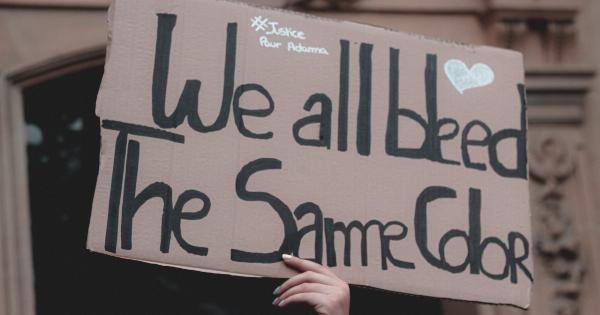Mental health institutions, both hospitals and clinics, have been established for the purpose of providing care and treatment to individuals suffering from mental health disorders.
While the intentions of these institutions may be noble, it is important to challenge their legitimacy in the current healthcare sector. Mental health institutions have faced a lot of controversies in recent years, with complaints of abuse, mistreatment, and a lack of basic human rights for patients.
This article will explore these issues and question the very legitimacy of mental health institutions, and how we can improve the overall mental healthcare system.
Mental Health Institutions and the Controversies They Face
Mental health institutions have faced a lot of criticism over the past decade, and this has raised serious questions about their role in the healthcare industry.
The following are some of the controversies that challenge the legitimacy of mental health institutions:.
Abuse and Mistreatment of Patients
There have been numerous reports of abuse and mistreatment of patients in mental health institutions. Patients have complained of physical abuse, emotional abuse, and a lack of respect for their basic human rights.
In some cases, patients have been restrained or medicated against their will, and have reported being subjected to invasive medical procedures without their consent. This can cause severe trauma and can negatively affect the patient’s mental health.
Lack of Privacy and Dignity
Patient privacy is a fundamental right that is often violated in mental health institutions.
Patients have complained of being constantly monitored or watched, with no privacy to carry out routine activities such as using the bathroom or taking a shower. The lack of privacy can cause patients to feel as though they are being punished for their mental health, leading to further isolation and depression.
Additionally, patients have also reported feeling degraded due to being forced to wear hospital gowns or obey strict dress codes that do not allow them to express themselves or feel comfortable in their own skin.
Over-Reliance on Medication
Many mental health institutions prescribe large doses of medication to patients in an attempt to control their symptoms or behaviors.
This can be seen as a quick fix solution, not addressing the root of the problem and often causing side effects that can even worsen the patient’s mental health. The over-reliance on medication highlights the lack of alternative treatment options available in mental health institutions.
The Role of the Pharmaceutical Industry in Mental Health Institutions
The pharmaceutical industry has a strong influence on the practices and procedures of mental health institutions. In many cases, institutions are encouraged to prescribe medication that the pharmaceutical companies produce.
This can lead to the over-prescription of medication and a lack of alternative treatment options for patients. The pharmaceutical industry has also been implicated in a number of scandals related to the over-marketing of drugs and the influence of their advertising campaigns on the mental healthcare industry.
The Lack of Focus on Preventative Treatment
Mental health institutions focus primarily on providing treatment for people who are already suffering from mental health issues.
There is a lack of focus on developing preventative measures and early intervention programs that can help people avoid or delay the onset of mental health problems. This results in a high demand for treatment, leading to overcrowding and a lack of resources for people who need immediate care and attention.
Disproportionate Focus on Crisis Management Instead of Long-Term Support
The focus of mental health institutions is often on crisis management and stabilization, rather than providing long-term support for patients.
This leads to a revolving door approach to treatment, where patients are discharged after stabilization and then face a high risk of relapse and returning to the institution. The lack of focus on long-term support can also limit the overall effectiveness of the treatment provided in mental health institutions.
The Need for Alternative Treatment Options
The controversies surrounding mental health institutions highlight the need for alternative treatment options.
People who are struggling with mental health issues need access to a range of treatment options and healthcare professionals who understand their individual needs and can provide tailored care. The following are some alternative treatment options that could help improve the overall mental healthcare system:.
Community-Based Support
Community-based support services could help provide long-term care and support for people who have suffered from mental health issues. This would include services such as counseling, support groups, and access to medication if required.
Community-based support is important as it allows people to access care outside of a formal hospital setting, in a more familiar and non-institutionalized environment.
Focus on Early Intervention and Prevention
By focusing on preventative measures and early intervention, mental health issues may be spotted and treated before they become severe.
This approach reduces the demand on mental health institutions and provides patients with more accessible and personalized care.
Innovative Treatment Options
Alternative treatment options such as art therapy, music therapy, and nature-based activities could be incorporated into traditional mental healthcare practices.
The use of these alternative treatments has been shown to have a positive impact on recovery rates and reduce the need for medication or hospital care.
Conclusion
The controversies surrounding mental health institutions are serious and should not be ignored. Patients have the right to basic human rights, including privacy, dignity, and respect, and should not be subjected to abuse or mistreatment.
We need to question the legitimacy of mental health institutions and work towards creating a more accessible, supportive, and holistic mental healthcare system that meets the unique needs of each individual patient.





























